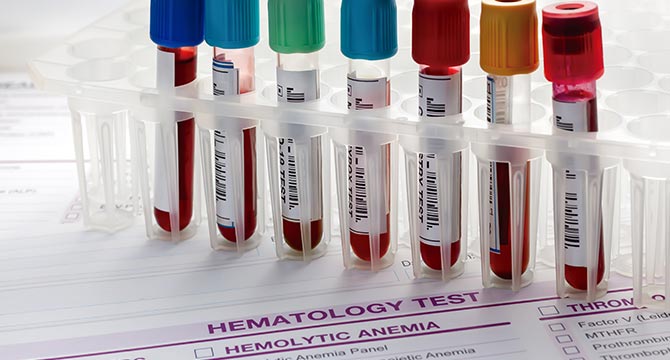
Hematologists treat a wide range of blood disorders, both benign (non-cancerous) and malignant (cancerous).
Hematology is the branch of medicine that focuses on the study of blood, blood-forming organs, and blood diseases. It involves diagnosing and treating conditions like anemia, clotting disorders, leukemia, lymphoma, and other blood-related illnesses. Hematologists are specialists who understand how blood functions and what happens when something goes wrong with red blood cells, white blood cells, platelets, bone marrow, and the proteins involved in bleeding and clotting.
Categorized list of common conditions:
Non-Cancerous (Benign) Blood Disorders:
- Anemia (e.g., iron deficiency, sickle cell anemia, thalassemia, aplastic anemia)
- Clotting disorders (e.g., hemophilia, von Willebrand disease)
- Bleeding disorders (e.g., thrombocytopenia, platelet function disorders)
- Deep vein thrombosis (DVT) and pulmonary embolism (PE)
- Hypercoagulable states (increased risk of blood clots)
- White blood cell disorders (e.g., neutropenia)
Blood Cancers (Malignant Hematologic Diseases):
- Leukemia (cancer of the blood and bone marrow)
- Lymphoma (Hodgkin and non-Hodgkin types)
- Multiple myeloma (cancer of plasma cells)
- Myelodysplastic syndromes (MDS)
- Myeloproliferative neoplasms (MPNs)
Other Conditions:
- Bone marrow failure syndromes
- Hemochromatosis (iron overload)
- Paroxysmal nocturnal hemoglobinuria (PNH)
- Immune thrombocytopenic purpura (ITP)
- Autoimmune hemolytic anemia


